Caregiver Experience: Courses for Caregiver Relief
Welcome to our comprehensive catalog of courses, designed to enhance your personal growth and well-being. Whether you're looking to improve your communication skills in eldercare or seeking effective ways to manage stress, we offer a variety of courses to cater to your needs.

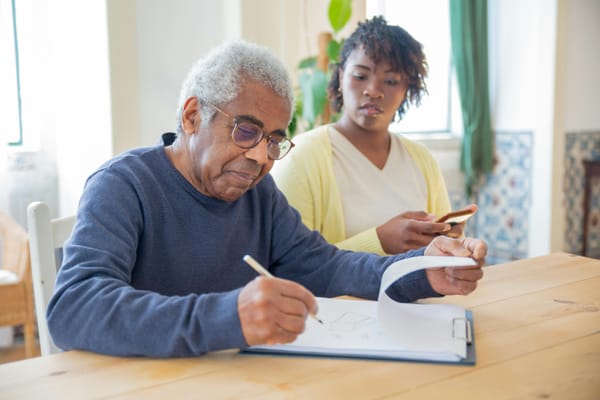
How to Become a Patient Care Advocate for Your Family Member as a Family Caregiver
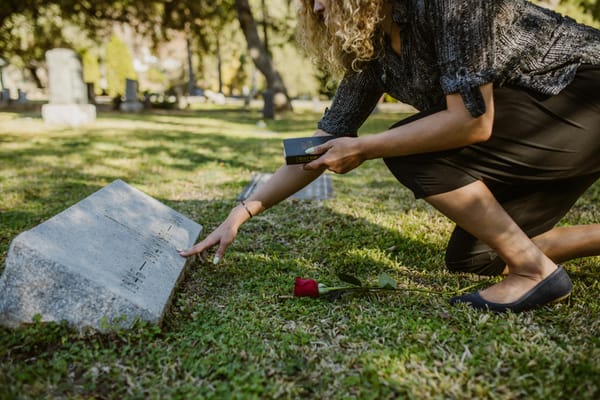
After Life Grief Recovery and Emotional Support Course
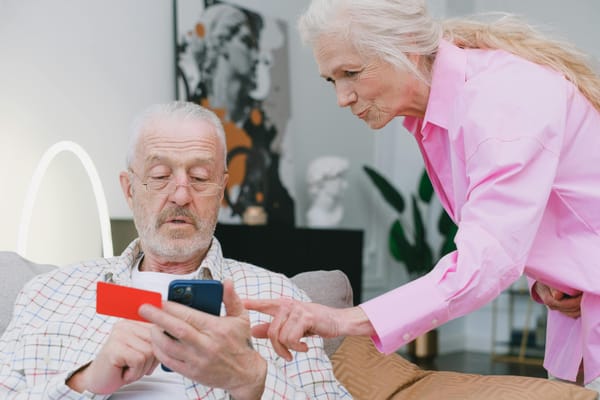
ElderCare Communication Course
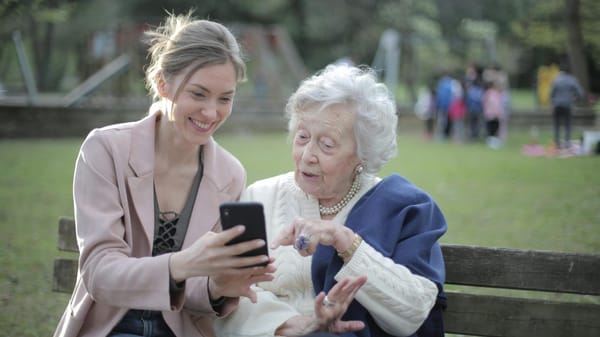
New To Caregiving

Stress Buster Course for Caregivers to Prevent Caregiver Burnout
Courses Offered by Caregiver Relief: Empowering Family Caregivers
Caregiving is a journey filled with challenges and rewards, often requiring family members to step into roles they never anticipated. To ease this journey and provide invaluable support, Caregiver Relief has developed specialized courses tailored for family caregivers. These courses aim to equip caregivers with the knowledge, skills, and emotional support needed to navigate their caregiving responsibilities effectively.
Courses Designed for Family Caregivers
- How to Become a Patient Care Advocate for Your Family Member
This course is a guide for family caregivers who find themselves advocating for a loved one’s health and well-being. It offers practical tips and insights into working with healthcare professionals, understanding medical jargon, and ensuring that the patient's needs are met in hospitals, nursing homes, or during in-home care.
Key Benefits:
- Improved communication with medical staff
- Tools to navigate complex healthcare systems
- Knowledge to secure the best possible care for loved ones
- After Life Grief Recovery Online Course
Grief is an inevitable part of caregiving, especially after the loss of a loved one. This course provides emotional support and strategies to help caregivers process their grief, find peace, and rebuild their lives after caregiving.
Key Benefits:
- Guidance on managing grief and emotions
- Support for moving forward while honoring memories
- Connection with others who share similar experiences
- ElderCare Communication Caregiver Training
Effective communication is at the heart of successful caregiving. This course focuses on enhancing communication skills with elderly family members, especially those with conditions like Alzheimer’s disease or traumatic brain injury, and fostering family involvement in caregiving.
Key Benefits:
- Strategies for compassionate and clear communication
- Techniques to involve the entire care team, including siblings, children, and professionals
- Tools to navigate challenging conversations
- New to Caregiving
Starting your caregiving journey can be overwhelming. This course serves as an introduction, helping new caregivers understand their roles and responsibilities while offering practical advice for balancing caregiving with other life demands.
Key Benefits:
- Understanding the basics of family caregiving
- Tips for organizing caregiving tasks and time management
- Insights into self-care and avoiding caregiver burnout
- Stress Management Course for Caregivers
Caregiving can be physically and emotionally demanding, often leading to severe stress and even caregiver burnout. This course provides tools and techniques for managing stress, maintaining mental health, and finding joy in caregiving.
Key Benefits:
- Stress reduction techniques tailored to caregivers
- Strategies for balancing caregiving and personal needs
- Tools for building resilience and improving emotional well-being
What Sets These Courses Apart?
- Tailored for Family Caregivers: These courses address the unique challenges faced by family caregivers, from managing caregiving responsibilities to coping with the emotional toll.
- No Certifications Required: While these are not professional certification programs, participants receive a certificate of completion to recognize their efforts.
- Focus on Emotional Support: The courses emphasize managing the emotional stress of caregiving, fostering better relationships with family members and healthcare providers, and improving overall well-being.
- Practical Knowledge: Whether it’s navigating the healthcare system, managing in-home care, or balancing personal responsibilities, these courses offer actionable insights for every stage of the caregiving journey.
Empowering the Caregiver Journey
Caregiving is more than a role—it’s a responsibility that requires strength, compassion, and knowledge. Caregiver Relief’s courses are designed to transform the caregiving experience into a more positive and fulfilling journey. By offering emotional support, practical tools, and education, these courses empower caregivers to take better care of their loved ones—and themselves.
Whether you’re caring for a parent recovering from a massive stroke, supporting a spouse with dementia, or balancing caregiving with your job and family, these courses provide the guidance and support you need. Take the next step in your caregiving journey and explore these valuable resources today.
Understanding Caregiver Challenges
Caregiving can be a rewarding experience, but it also comes with its own set of challenges. Family caregivers, in particular, face unique difficulties as they navigate their roles and responsibilities. One of the most significant challenges is the emotional toll of caregiving.
The Emotional Toll of Caregiving on Family Caregivers
Family caregivers often experience high levels of emotional stress, which can lead to caregiver burnout. This can be due to various factors, such as the physical and emotional demands of caregiving, lack of support, and the emotional attachment to the care recipient. Family caregivers may also experience feelings of guilt, anxiety, and depression, which can further exacerbate the emotional toll of caregiving.
Moreover, family caregivers may have to balance their caregiving responsibilities with other aspects of their lives, such as work, family, and social relationships. This can lead to feelings of overwhelm and resentment, particularly if they feel unsupported or unappreciated.
It is essential for family caregivers to recognize the emotional toll of caregiving and seek support when needed. This can include reaching out to support groups, social workers, or mental health professionals for emotional support and guidance.
Building Resilience and Coping Skills
Building resilience and coping skills is crucial for family caregivers to manage the emotional toll of caregiving. Effective coping mechanisms can help caregivers navigate the challenges of caregiving and reduce the risk of burnout.
Effective Coping Mechanisms for Caregivers
- Seeking Support: Connecting with support groups, social workers, or mental health professionals can provide emotional support and guidance.
- Self-Care: Engaging in self-care activities, such as exercise, meditation, or hobbies, can help reduce stress and improve overall well-being.
- Boundary Setting: Establishing clear boundaries and prioritizing one’s own needs can help prevent burnout and reduce feelings of resentment.
- Respite Care: Taking breaks and seeking respite care can provide temporary relief and give caregivers time to recharge.
- Education and Resources: Accessing educational resources and support services can help caregivers develop the skills and knowledge needed to navigate the caregiving journey.
By building resilience and coping skills, family caregivers can better manage the emotional toll of caregiving and provide high-quality care to their loved ones.
Navigating Caregiving Responsibilities
Navigating caregiving responsibilities can be complex and overwhelming, particularly when it comes to managing finances. Family caregivers must balance their caregiving responsibilities with financial planning and decision-making.
Managing Caregiving Finances
- Assessing Financial Resources: Evaluating the care recipient’s financial resources, including income, assets, and benefits, can help caregivers make informed decisions.
- Creating a Budget: Developing a budget that accounts for caregiving expenses, such as medical bills, home care, and equipment, can help caregivers manage finances effectively.
- Exploring Financial Assistance: Researching and accessing financial assistance programs, such as Medicaid, veterans’ benefits, or non-profit organizations, can help alleviate financial burdens.
- Seeking Professional Advice: Consulting with financial advisors or geriatric care managers can provide guidance on managing caregiving finances and making informed decisions.
- Prioritizing Financial Planning: Prioritizing financial planning and decision-making can help caregivers ensure the care recipient’s financial security and well-being.
By navigating caregiving responsibilities effectively, family caregivers can provide high-quality care to their loved ones while also managing their own financial well-being.
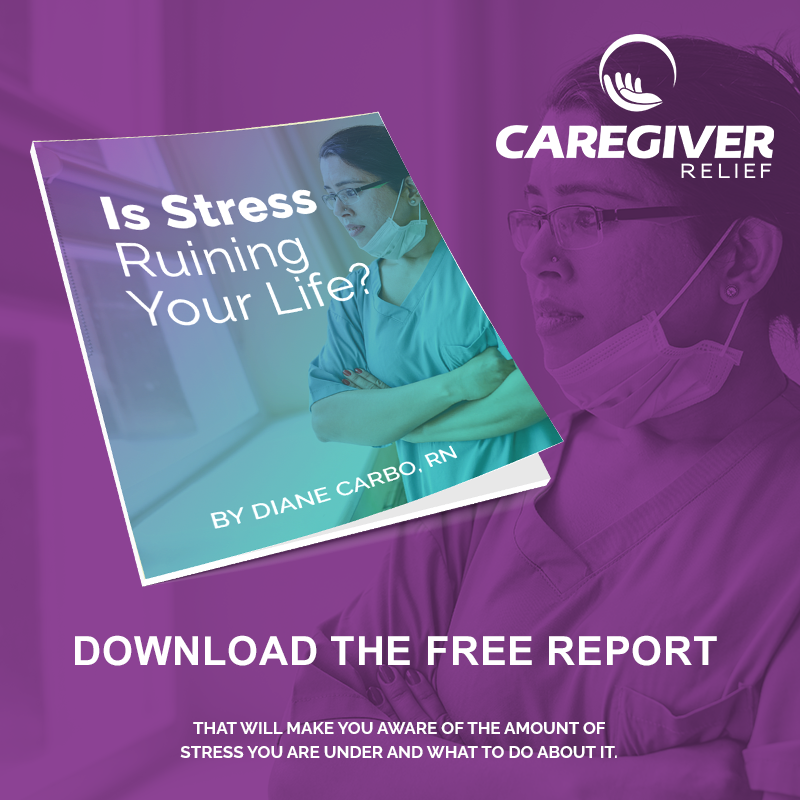
FAQ: Caregiver Relief Courses
Who are these courses designed for?
These courses are specifically created for family caregivers who are supporting loved ones with illnesses, disabilities, or aging-related needs. They are also valuable for those transitioning into caregiving roles for the first time.
What makes these courses different from professional certifications?
Unlike professional certifications for home health aides or nurses, these courses focus on improving the caregiver experience through practical knowledge, emotional support, and strategies for managing caregiving responsibilities. While a certificate of completion is awarded, the courses do not lead to professional certification.
Are these courses suitable for caregivers dealing with Alzheimer’s or dementia?
Yes, caregivers supporting loved ones with Alzheimer's disease or dementia will find helpful communication techniques, stress management strategies, and insights on handling challenging caregiving scenarios.
How do these courses help manage caregiver burnout?
The courses offer tools to reduce emotional stress, balance personal and caregiving responsibilities, and focus on self-care to prevent caregiver burnout.
Are these courses available online?
Yes, all courses are offered as online training, allowing caregivers to learn at their own pace and revisit the materials as needed.
What kind of emotional support is provided?
Courses like the After Life Grief Recovery Online Course and Stress Management Course for Caregivers focus on handling emotions, providing coping mechanisms for grief, stress, and the challenges of caregiving.
How do these courses address the needs of family caregivers?
The courses are designed to:
- Improve family involvement and teamwork in caregiving
- Offer insights into long-term care planning
- Address specific challenges like traumatic brain injury or massive stroke recovery
- Teach how to communicate effectively with healthcare professionals
Are there any courses that help caregivers manage legal or financial issues?
While the courses focus primarily on caregiving skills, some touch on important aspects of caregiving such as planning for long-term care, working with social workers, and organizing essential resources.
How can these courses benefit me as a caregiver?
Participants can expect:
- Enhanced confidence in their caregiver role
- Practical techniques for managing caregiving responsibilities
- Improved relationships with family members and the care team
- A more balanced approach to caregiving and their own needs
Do these courses cover in-home care techniques?
Yes, courses include guidance on in-home care, such as assisting with daily activities, managing adaptive equipment, and providing respite care when needed.
How long does it take to complete a course?
The time required varies, but most participants complete the courses in a few hours or at their own convenience due to the flexible online format.
Are these courses interactive?
The courses include engaging materials, exercises, and actionable strategies that participants can apply immediately to their caregiving situations.
How do these courses prepare me for the caregiving journey?
The courses provide education and tools to navigate caregiving challenges, manage expectations, and create positive experiences for both the caregiver and the loved one.
Can I join a support group after completing a course?
Many caregivers find value in connecting with others through support groups after completing these courses. The insights gained can help caregivers contribute effectively to these groups and share their experiences. Caregiver Relief offers a FB Private Group to share your caregiving experiences, challenges and obstacles as well as a place to find solutions to them.
How do I sign up for these courses?
Visit our website to explore course options, learn about the benefits, and begin your journey to a more supported and informed caregiving experience.
More on ...Caregiver Experience: Courses for Caregiver Relief
Empowering Family Caregivers with Knowledge and Support
General Information
What is the purpose of these courses?
The courses are designed to provide family caregivers with knowledge, emotional support, and practical strategies to navigate the caregiving journey. They address the challenges of caring for loved ones with conditions like Alzheimer’s disease, traumatic brain injuries, and other health issues.
Who can benefit from these courses?
These courses are ideal for:
- Family caregivers caring for loved ones, such as a parent, spouse, or child.
- Professional caregivers like home health aides or nurses seeking additional insights.
- Anyone managing caregiving responsibilities for someone ill or recovering from a massive stroke, a long-term illness, or severe stress.
Course Content
What topics do the courses cover?
The courses focus on:
- Understanding the caregiver role and responsibilities.
- Managing emotional stress and preventing caregiver burnout.
- Providing in-home care and respite care.
- Navigating healthcare systems, nursing homes, and support groups.
- Enhancing self-care and balancing your own needs with caregiving duties.
- Building and managing a care team, including family involvement and professional help.
- Sharing personal experiences and stories to inspire and educate other caregivers.
Do the courses address emotional challenges?
Yes, emotional support is a key focus. The courses help caregivers cope with feelings of overwhelm, sadness, and stress while maintaining their ability to care for loved ones effectively.
Are the courses specific to certain conditions?
While the courses are broad, they address caregiving for conditions like Alzheimer’s disease, traumatic brain injuries, massive strokes, and other illnesses. They also provide strategies for long-term care planning.
Enrollment and Access
How do I enroll in the courses?
You can enroll directly through the Caregiver Relief platform by selecting the course that fits your needs. Registration details will be provided upon signup.
Are the courses online or in-person?
Currently, all courses are offered online to provide flexibility for caregivers managing time-consuming responsibilities.
Can I access the courses at my own pace?
Yes, all courses are designed for self-paced learning to accommodate your busy caregiving schedule.
Support and Resources
Are there opportunities to connect with other caregivers?
Yes, the courses include access to support groups and community forums where you can share experiences, advice, and emotional support with other caregivers.
What additional resources are available?
Participants gain access to tools like:
- Caregiver stress tests and emotional well-being checklists.
- Guided Imagery meditations for stress relief.
- Educational materials on in-home care, respite care, and building a care team.
Practical Benefits
How will these courses benefit me as a caregiver?
The courses provide:
- Improved ability to manage caregiving responsibilities effectively.
- Tools to navigate healthcare systems and work with professionals like social workers and nurses.
- Strategies to prioritize self-care and maintain emotional and physical health.
- Insights into balancing caregiving with your own life, job, and family.
Can these courses help prevent caregiver burnout?
Absolutely. By offering practical tools, emotional support, and time-management strategies, the courses are designed to alleviate caregiver burnout and improve the overall caregiving experience.
Feedback and Personalization
Are the courses tailored to different caregiving situations?
Yes, the courses address a range of caregiving scenarios, including caring for elderly parents, ill family members, or patients recovering from illness or injury.
Can I share my personal experiences during the courses?
Yes, caregivers are encouraged to share their stories, which helps foster a supportive community and provides learning opportunities for others.
Additional Questions
What if I need more personalized guidance?
Caregiver Relief offers coaching and support services for those seeking one-on-one help in navigating their caregiving journey.
How can I ensure my own needs are met while caregiving?
The courses emphasize the importance of self-care and provide actionable strategies to balance your responsibilities with your personal and emotional well-being.
Whether you’re an experienced caregiver or new to the role, these courses are designed to help you navigate the complexities of caregiving while maintaining a positive and balanced life. Let Caregiver Experience: Courses for Caregiver Relief be your guide!

